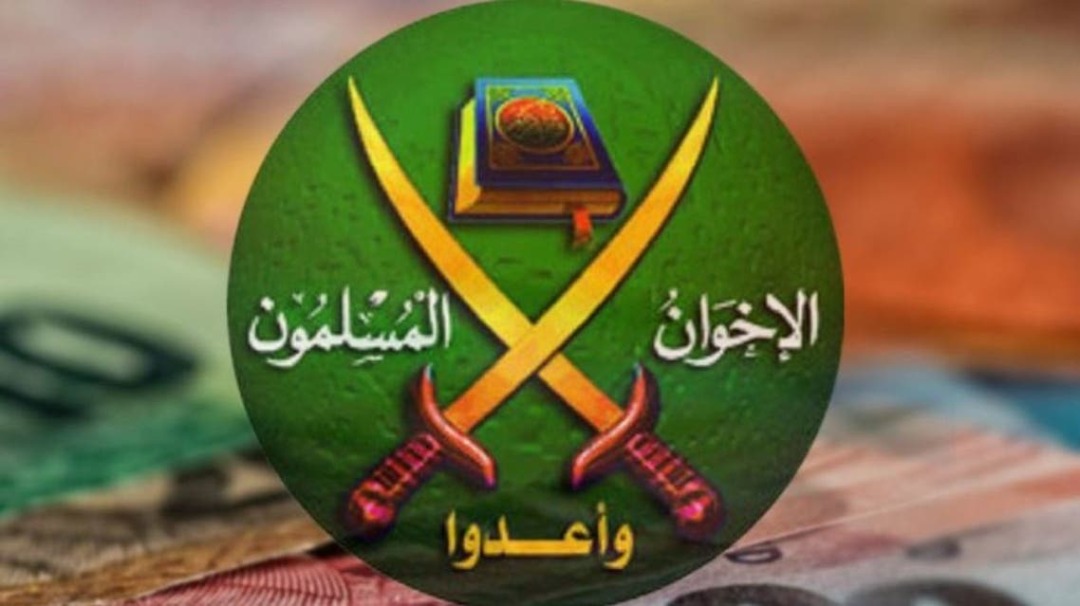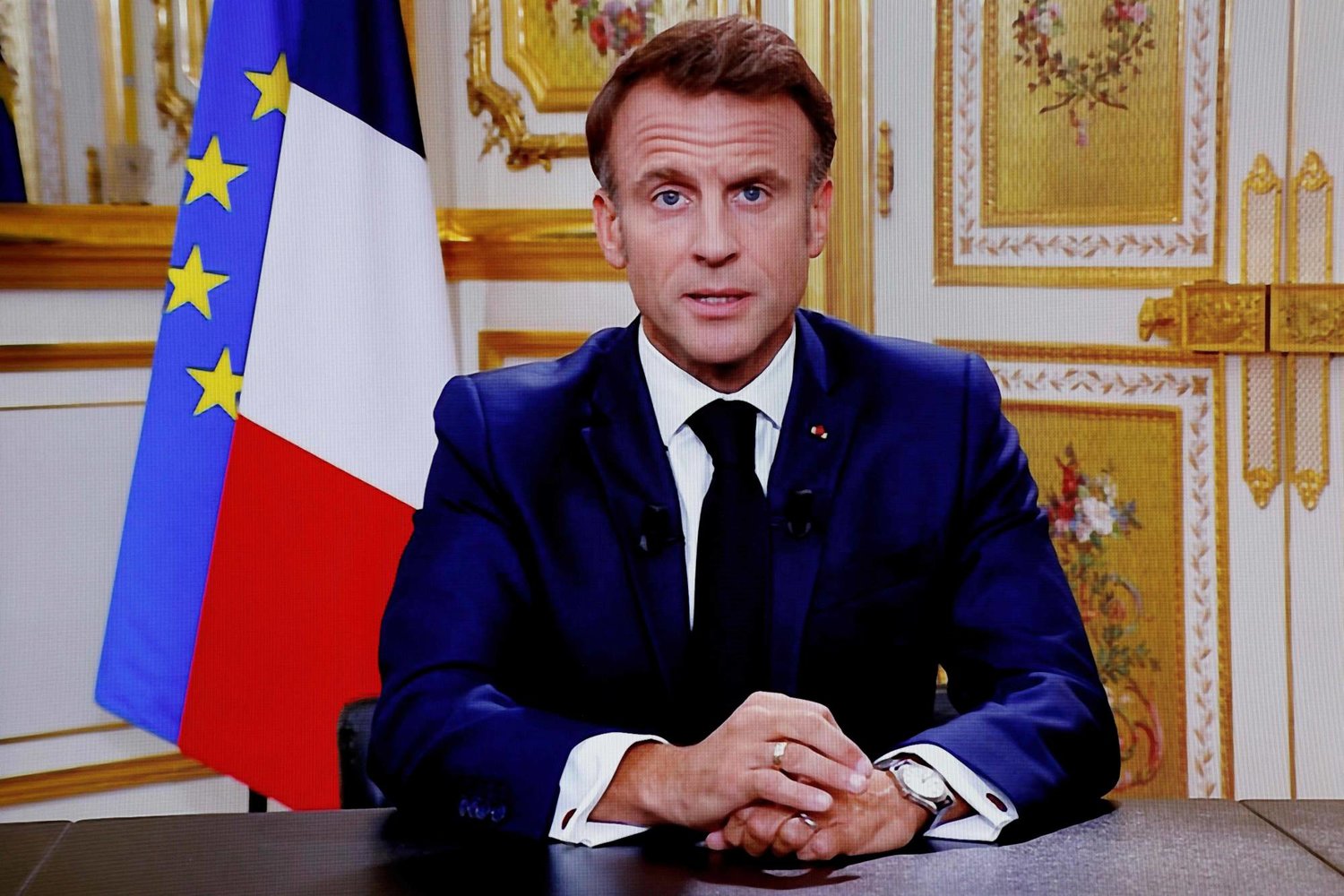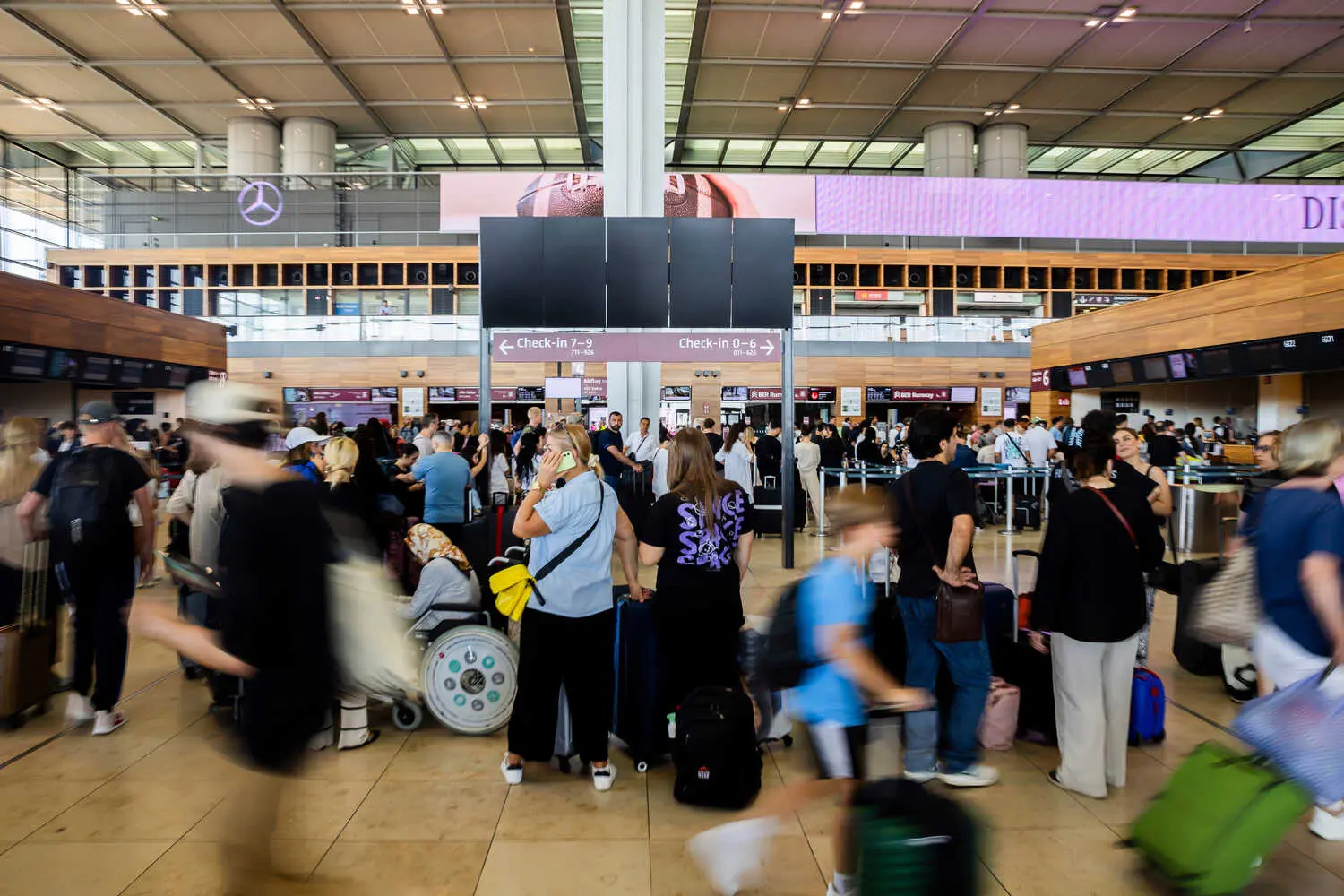
Andie Flemström
European Centre for Counterterrorism and Intelligence Studies, Germany & Netherlands – ECCI
By: Andie Flemström, researcher in extremism and terrorism issues –Stockholm,
Master of Arts –International relations – Stockholm University
Muslim Brotherhood in Sweden, threats and challenges
European countries woke up late to the dangers of political Islam currents and groups, led by Muslim Brotherhood (MB) and the Salafi jihadist movement. The terrorist attacks that were carried out in many European countries in lately years revealed the direct and indirect extremist ideological links between Muslim Brotherhood and the perpetrators of those attacks. In 2021, Austrian parliament banned the Brotherhood in a unique measure in its combating extremism and terrorism. By this, it is the first European country to ban MB. Will Swedish Muslim Brotherhood meet the same fate?
Political Islam – Islamism
The definition of political Islam is “Islam used to a political end”, the politicization of religion. It is a political ideology based on and derived from Islam, from which it acquires its legitimacy. Also it refers to the movements representing modern political mobilization in the name of Islam, a trend that emerged in the late 20th century.
Muslim Brotherhood in Sweden – Organizations- mosques
Muslim Brotherhood was established in Sweden as a consequence of immigration from the late 1970s. Over the years, MB has been able to establish a completely dominant position within Muslim community in Sweden, and many millions have been funneled from Swedish taxpayers into the Swedish branch of the world’s largest Islamist organization – Muslim brotherhood.
MB has succeeded to introduce itself as representative of a religious minority and has managed to build a ‘government status’ where they are consulted on issues related to Islam and Muslims in general. Recognition MB as a representative of Islam and Muslim community means opportunities to access financial resources, which in turn enables them to increase their ideological influence among other Muslims, and to be able to monopolize the interpretation of Islam. MB In Sweden is a member of and works under the supervision of “Federation of Islamic Organizations in Europe (FIEO)”.
Here are some of the more influential organizations that MB has set up in Sweden
- Islamic Association in Sweden (IFIS)
- Swedish Muslim council (SMR)
- Islamic Relief in Sweden
- Ibn Rushd Study Association
- Swedish young Muslims
- United Islamic congregations in Sweden
- Sweden’s Islamic Schools (SIS)
Islamic Association in Sweden (IFIS) was founded in 1981. According to the IFIS charter, it is a founding member in the Muslim Brotherhood-associated umbrella organization Federation of Islamic Organizations in Europe (FIOE) . IFIS is the main driver of Islamic action in Sweden. IFIS has started the above organizations. The organization’s chairman since 2011 is Omar Mustafa.
Mosques
Stockholm’s Mosque is located in Stockholm and Mahmoud Khalfi is the Imam and Director. Stockholm Mosque is today the most famous MB institution in Sweden. It is considered the headquarters of the movement and was inaugurated in 2000. Moské is funded by many actors .
Gothenburg Mosque is located in Gothenburg and inaugurated in 2011 . Ahmed Ghanem is VD and Imam
The emergence of Islamism in Sweden
MB has succeeded to infiltrate the Swedish political parties or other influential groups to increase political influence. Many MB related politicians have succeeded to get high positions within the established parties in Sweden.
Mahmoud Khalfi, imam in Stockholm Mosque, saw it as a success for Islamism when Mehmet Kaplan got the job as a minister in the red-green government led by Stefan Löfvén in 2014. In the Arab media, he said, among other things, that “through Mehmet Kaplan’s political career, there was a breakthrough for the Islamists in Sweden”. Khalfi also praised Swedish politicians because they “have normalized the relationship with the Islamic Association which is known for its affiliation with the Muslim Brotherhood”.
In August 2019, Mikail Yüksel- a Swedish politician of Turkish origin-founded a new party in Sweden called ‘Nyans’ (Nuance). Yüksel was a former member of Sweden’s liberal Centerparty. He started the party after being forced to resign at Sweden’s elections to the European Parliament on the background of alleged connection with Turkish Gray Wolves, the militant youth wing of Turkey’s ultra nationalist movement party (MHP), of which his father is a member, and is a coalition partner to President Erdogan’s AKP.
According to Magnus Norell, Nynas party presents a new data point in a concerning trend in European politics. Erdogan’s government is supported and invested in small European parties that align with Erdogan’s own political vision in Turkey. In Europe, this is taking place as part of Turkey’s large investment in building economic, social, and religious bridges to European parties that are politically aligned with its interests.
The Islamist party Nyans platform focuses on themes common to existing European Islamist parties that Erdogan considered useful for his benefit. The platform calls for “Muslims to become an official homogeneous minority based on a specific definition of Islam”; to give Muslims a preferred and protected status in Swedish populations. Nyans is not the first party focusing specifically on these issues. In 2017, a party called “Jasin ” had explicitly stated its intention to follow sharia law.
Sweden also witnessed political efforts by Islamists during the 1999 agreement between the Social-Democratic movement “Faith & Solidarity” and “Muslim Council of Sweden” (SMR) which many observers have argued has roots with the Muslim Brotherhood. According to this deal, the SMR obtained a number of safe positions on party lists in exchange for its support for the Social Democrats. Since then, the number of movements and groups affiliated with the “Muslim Brotherhood” increased, and it obtained funding from the public treasury, and imposed itself as the most prominent representative body for Muslims in Sweden.
Political Islam is very sophisticated in building economic, social and religious bridges with Swedish parties, Secret cells for polarization and recruitment, control of educational institutions, exploitation of charitable associations and exploitation mosques and Muslim communities to form electoral bases.
The MB’s Political approach – methods and strategy
For the last years, Muslim Brotherhood in Europe including Sweden has changed its methods and rhetoric due to the fact that Muslims find themselves at a disadvantage on the European continent. MB has changed or adjusted the classical worldview dividing the world into dar al Islam (the realm of peace) and dar al Harb (the realm of war) which means in Christian Europe. Tariq Ramadan, the most prominent ideologues of the MB network, states that Muslims should view Europe as dar al Shahada (the realm of testimony), which means that Europe can also be seen as dar al Dawa (the realm of mission). He believes that Muslims have a duty to “testify” and spread Islam in Europe.
Given to de facto that MB is a legitimate representative of Swedish Muslims, MB is given the opportunity to control how Islam is represented and to construct the problem facing Swedish Muslims. Based on this, MB’s activists have developed a strategy where these problems and difficulties lie in the mainstream society’s attitude to the Islam and its follows.
In this respect, MB’s activists reject all types of criticism of Islam or their efforts by using the term “Islamophobia”. This term is used to undermine people’s morals instead of discussing realistic matters. This pattern of action is effective for MB’s activists who use it to defend their pro- Islamist project. By using the term, they can publicize the false conception that they are ordinary Muslims exposed to “Islamophobia” rather than being part of “a socially transformative ideology”.
In a secular political context, this strategy is productive for Islamists to be seen as a victim rather than a player: built into victimhood is the idea that someone should be “pitied” rather than “feared”. This role means that one can always claim to be misunderstood or exposed to a discrimination of mainstream society that despises or hates Islam. The Islamists are aware that it is very difficult to defend oneself against accusations of being an “Islamophobe” and therefore they will continue to use it as a rhetorical weapon in their political game. This type of “self-victimization” seems dominant and successful throughout the Islamic movement. They view themselves as permanent victims who refuse to accept any responsibility for their situation.
The dangers of Political Islam in Sweden
In the past two years, the Swedish Schools Inspectorate has closed two schools in Örebro, after the Swedish Security Service (Säpo) has assessed that the children are probably exposed to radicalization and recruitment to violence-promoting environments, which accept violence or criminality as a method of political change.
According to the Security Service, several employees, including the former board member who joined IS during the war in Syria and then came back to Sweden, are suspected of being supporters of violent Islamism in Örebro. In addition, Information from Säpo also shows that the board has approved teaching although there is a risk of children being exposed to “non-democratic values”.
“It is very serious that violent extremists are entering the school system,” says Anders Gullberg, a lawyer at the School Inspectorate.
Islamists: Swedish Security service (säpo) has estimated that there were about 200 violent Islamists in Sweden in 2010; latest figures say 2000 thousand in 2017. According to the National Centre for Terrorist Threat Assessment, the main terrorist threat to Sweden comes from Islamists and right-wing extremist terrorism.
In two reports conducted by MSB (The Swedish Civil Contingencies Agency) in 2017 and 2018, Muslim Brotherhood and its associated organizations are described as a threat to Swedish society, not only because they would be pro-violence but because they criticize Swedish society for being permeated by Islamophobia and thus contribute to a victimization of Swedish Muslims, which the authors believe risks to polarize Swedish society and in the worst case can lead to radicalization and extremism..
Measures taken by Sweden against political Islam –MB
In 2019, The Swedish government made a decision on deportation of six Islamist men in accordance with the “law on special Aliens control” (LSU) following an application from Swedish Security service (Säpo).
The decision is about: Gävleimamen Abo Raad and his son Raad Al Duhan, Umeå Imamen Hussein Al-Jibury, Västerås Imamen Fekri Hamad, Viktor Gaziev from Gävle and Abdel-Nasser el Nadi, former leaders of the School of Science. These Islamist men are described as central figures in the Islamist environment in Sweden and are considered to pose a threat to national security. The deportations could not be enforced because there is a “threat and danger to men’s lives and health” in the home countries according to the terror expert Hans Brun. Consequently, the men have also been released from the Swedish Migration Board’s detention center.
In June 2020, the Swedish Migration Agency decided on deportation of the former suspected IS recruiter Ahmed Abdul Karim Ahmed with the support of LSU after application from security service. He was deported out of the country in a secret operation by security service in 2022. Ahmed Ahmed was on security service’s radar long before he was arrested on suspicion of terrorist recruitment in 2015. He was in his role as imam a key figure in the radicalization and recruitment of jihadists in many mosques such as: Örebro, Eskilstuna, Gothenburg and especially in Stockholm. He was also very active as a lecturer on Islam for young people in a number of different associations.
Unlike the other cases with imams who received deportation decisions following an application from security service, the Swedish Migration Board and the Migration Court of Appeal judged that there was no obstacle to deporting Ahmed Abdul Karim Ahmed to his home country Iraq.
Assessment of the dangers of political Islam in Sweden
Muslim Brotherhood presents itself as an apolitical, social and religious movement but in de facto it is a fundamentalist and extremist organization and has an Islamist ideology with a political goal in establishing an Islamic ordning under the rule of Sharia. For example, IFIS in the Stockholm mosque believes that Sharia is an “eternal” system of laws that God has commanded mankind to follow regardless of time and place.
Given that The Brothers (Ekhwan -Arabic name for MB) believe that Islam should encompass everything in a society and that it is Sharia that governs society and this is a law that does not change with time and space, how is this to be combined with Western democracy? How is it possible to be both a proponent of democracy based on people making the laws and at the same time a supporter of an unchanging sharia that “governs society”? No unequivocal answer to these questions has ever been given by representatives of. But those who know the history of Muslim Brotherhood realize that the “Brotherhood Doctrine” was born in opposition to the Western cultural and societal model and it revolves around the “Islamic Renaissance” against the grip of Western secularism and the blind imitation of the European model and to reestablish the Caliphate state under the rule of Shari.
MB’s work still depends on covert and secrecy and hides its activities behind the facades of mosques and Islamic centers and charitable associations and a discourse characterized by duality. Over decades MB has succeeded to create a parallel societal structure which creates problems for Swedish society’s ability to conduct an effective integration policy and constitutes a long-term challenge in terms of the country’s social cohesion.
The belief that MB is a legitimate representative of Islam and Muslims in Sweden means the lack of knowledge about Islam and about MB as well. The consequence of this pattern of action and thinking entails giving the Islamist movement as a whole the opportunity to further strengthen their political and religious influence. This would also contribute to creating more segregation and polarization. Aje Carlbom, social anthropologist and debater argue that:
“A problem with MB -associated organizations is that they contribute to creating political and social polarization by pitting an imagined “we” (Muslims) against an imagined “them” (Non- Muslims). This is an identity politics strategy that pits groups against each other and thereby has a negative impact on democratic rules regarding the debate of factual issues”.
He believes that “The risk of uncritically allocating resources to MB-associated organizations is that they influence the integration process negatively in that they want to protect Muslims from influence by the majority society by building up a parallel Islamic sector of public bodies, a so-called Muslim civil society”.
Muslim Brotherhood constitutes a threat to Sweden from a security perspective. Many Observers and experts argue that the Islamists have exploited the social, cultural and economic conditions of residents of some suburbs, especially the Muslim communities, and played on contradictions to spread extremist and takfiri ideology among their children and youth. They have conducted workshops for teaching and indoctrinating the ideas of racism and religious extremism and recruiting members to terrorist organizations outside the country like terror organization Islamic state.
In this respect, the consequence of ignoring or negating the fact that Islamism has anchored it roots in Sweden and acquired a considerable position and influence in Sweden among both political elite and society means lack knowledge about political Islam presented in MB and what their agenda is. This ignorance and naivety entail supporting widespread stereotypes and prejudices about “Muslims” in the collective consciousness.
Has Muslim Brotherhood succeeded in Sweden?
Over the years, Muslim Brotherhood in Sweden has gradually succeeded to build an institutional structure that smoothly used the “Swedish model” which enable them to master “art of milking the open, welcoming and generous system in Sweden” for securing financial aid from the public money. MB has used a diversity of methods and strategies to reach their goals and increase political influence. Such as: infiltrating political parties and other influential groups, NGOs and other civil society organizations and introducing itself as representative of a religious minority.
In fact, many researchers argue that the state and society have financially and organizationally contributed to and aided the establishment of many organizations with direct or indirect ties to The Brothers. Many of these organizations receive millions of SEK in support from the state and taxpayers.
According to many expert on MB, one of them is Magnus Norell with whom I totally agree, states that the success of Swedish MB-affiliated groups sand associations would not be possible to achieve its exceptional degree of influence without a large degree of naiveté and ignorance among Swedish elite and society in general about political Islam as a concept and ideology.
By uncritically promoting ‘Islamophobia’ as the crucial problem for Muslims in Sweden and even in Europe and at the same time denying the existence of Islamism or political Islam many are giving their support to MB’s totalitarian thinking and unconsciously offer them circumstances and resources to further their political Islamist project in the long run.
The future of Muslim Brotherhood in Sweden
This is an important question but there is no clear answer in this paper. But as long as there is a problem for Swedish authorities in dealing seriously with the file of political Islam and extremist groups and as long as MB’s model is given free reign, there is an imminent risk that the movement may increasingly strengthen and move its position further in coming years.
In addition, as long as one runs the risk of being branded a “racist” or an “Islamophobe,” if opposes the MB’s communitarian approach, and given the current situation in Swedish society, such classifications may jeopardize people’s careers, the silence culture would give Islamists more strong position and status in the parallel society they built and at the same time, they will constitute a long term challenge in terms of the country’s social cohesion.
Recommendations- Prevention Strategies
Many reports issued by the intelligence agencies in Europe reflect the dangers of political Islam, represented by the international organization of the Muslim Brotherhood, to the security of Europe. It has become more danger than those of Salafi-jihadi groups, like IS and al-Qaeda. This is due to the fact that political Islam groups of all kinds have adopted soft policies to penetrate society and get closer to state institutions. They present themselves as “representatives” of Muslim communities in Europe to advance their political interests and agenda and to spread their extremist ideology rather than providing services to Muslim communities. The currents of political Islam hide their activities behind the facades of Islamic centers, mosques, associations and a discourse characterized by duality.
Political Islam represents a big problem and challenge that threatens democratic system in Sweden. Combatting it begins with confronting its attempts to create parallel and isolationist societies, and to spread extremism. There is much research confirming that Brothers incite hatred and violence and spread extremism because of the extremist ideology and thoughts they adopt.
Therefore, in order to Sweden success in combating violent extremism and terrorism, a package of measures should be taken to contain the efforts of “political Islam” to spread this extremist ideology.
- Primarily, Sweden should follow Austrian in including Muslim Brotherhood on the list of extremist organizations and banning it in Sweden; its symbols, slogan and its affiliated organizations. Given the current policy and attitude towards MB in Sweden, this courageous and radical measure is unthinkable action.
- The enactment a set of laws and legislations that promote and strengthen state’s efforts and measures to counter extremist and terrorism. These legislations facilitate the process of tracking and monitoring the incubator environments of extremist organizations and institutions that foster extremists, intensify the penalties on them, and monitor and punish incitement to hate speech and spread religious extremism and exploitation of Internet for these purposes. These legislations can as well address the propaganda and media machine of the Salafi-jihadi groups.
- It is urgent to establish a “Center for Documenting Political Islam” to analyze, monitor MB activities in Sweden, and then open legal investigations into the group’s activities and its financing of extremism and terrorism.
- To set up centers whose mission is to monitor extremist institutions and organizations in the country as a step to combat the Political Islam currents, or what is known as “Islamism”.
- It should be a transparency in financing MB and its affiliated organizations, Fund sources and supporters.
- Intensifying supervision of investments and financial institutions affiliated with the Brothers that are corridors for financing extremism and terrorism.One of the most important counter-terrorism mechanisms is dry up its sources of funding.
- Enactment a law aims at controlling mosques speech that does not comply with the values of Swedish democratic system, Monitoring funding sources of mosques and religious centers, preventing extremists and Islamists from taking over mosques, and stopping receiving imams sent and funded by foreign countries.
- It is urgent to have a law that prevents the recruitment of imams from outside EU, especially from Turkey, within the framework of a campaign against the political Islam. It is important to establish “European Institute for the Training of Imams”. Such a body would supervise the training of imams and ensure that their rhetoric does not contribute to ” extremism ideology ” .
- Closing down institutions suspected of spreading extremist ideas and ideology. For example, the Brotherhood schools, which have increased over the past two decades and have become one of the platforms for the dissemination of extremist thought. These schools are spreading as a result of indulgence of governments with activities and movements of MB,which is classified as terrorist organization by several countries. These schools represent hotbeds for the spread of extremist ideology, especially in the Swedish suburbs that populated most with Muslim community.
The school is one of the most important institutions in European MB’s plan to build a religious enclave. It is of course a logical consequence of the FIOE’s goal to preserve/protect Muslims from cultural assimilation; young people are the most formative and it is easier to establish a basic habitus that may be difficult to change in adulthood.
All rights reserved to the European Center for Counter-Terrorism and Intelligence Studies in Germany and the Netherlands – ECCI
References
Carlbom, Aje. 2017.“Islamic activism in a multicultural context– ideological continuity or change?”
European Centre for Counter terrorism and Intelligence Studies.2020.“The reality of political Islam in Europe 2020”
European Centre for Counter terrorism and Intelligence Studies.2021.“ Political Islam in Germany and Austria: Warnings and Measures”
Israelsson, Linette. 2019.” Därför utvisas inte imamerna: “Det är en bedömningsfråga”. Expressen
Islamic Association in Sweden. Federal Statutes 2012-06-10, page 1
Jenkins. John. 2015 .“Muslim Brotherhood Review: Main Findings”. ordered by the House of Commons.
Knudsen. Are. 2003.“Political Islam in the Middle East”. Chr. Michelsen Institute Development Studies and Human Rights.
Löwenmark ,Sofie. 2022. “Misstänkte IS-rekryteraren har utvisats i Säpoinsats” DOKU
Norell, Magnus2020.“Erdogan’s Influence in Europe: A Swedish Case Study”. Washington Institute
Norell.Magnus, Carlbom.Aje, Durrani.Kand Pierre. 2016 “Muslimska Brödraskapet i Sverige”. On behalf of MSB
Norell. Magnus. 2018. “The Muslim Brotherhood in Sweden/1”
Norell, Magnus.2018. “The Muslim Brotherhood in Sweden/2”
Olle Ohlsén Pettersson .2017. .“New report: The Muslim Brotherhood is active in Sweden”
Rickard Lagervall, Rickard. 2018. “Muslimska brödraskapet – en kunskapsöversikt”. FOI
Ramadan, T (2004): Western Muslims and the Future of Islam. Oxford: Oxford University Press.
Sky News Arabia. 2021.“A European alliance to strengthen measures to surround the Brotherhood after the Vienna Forum”
Sky News Arabia. 2021. “Hotbeds of extremism industry.. Brotherhood schools from the Middle East to Europe”
Sky News Arabia.2020. ”Ett europeiskt institut för imamutbildning. Kommer det att lyckas konfrontera Muslimska brödraskapet och Turkiet?”
säkerhetspolisen, 2020. Nationellt centrum för terrorhotbedömning
säkerhetspolisen,Säpo, 2017.“The extremist milieus have grown so much”
Tanha. Sophie.2021. “Schools in Örebro are closed – connections to IS”. Svenska DAgbladet
Trager, Ullah, Sakthivel, Islamists in Government: Do They Moderate Once in Power?, The Washington Institute for Near East Policy, May 1, 2014.
- 2021. “Schools in Örebro are closed – connections to IS”




